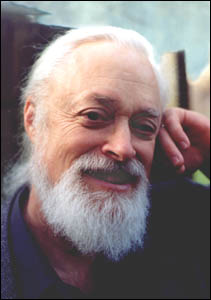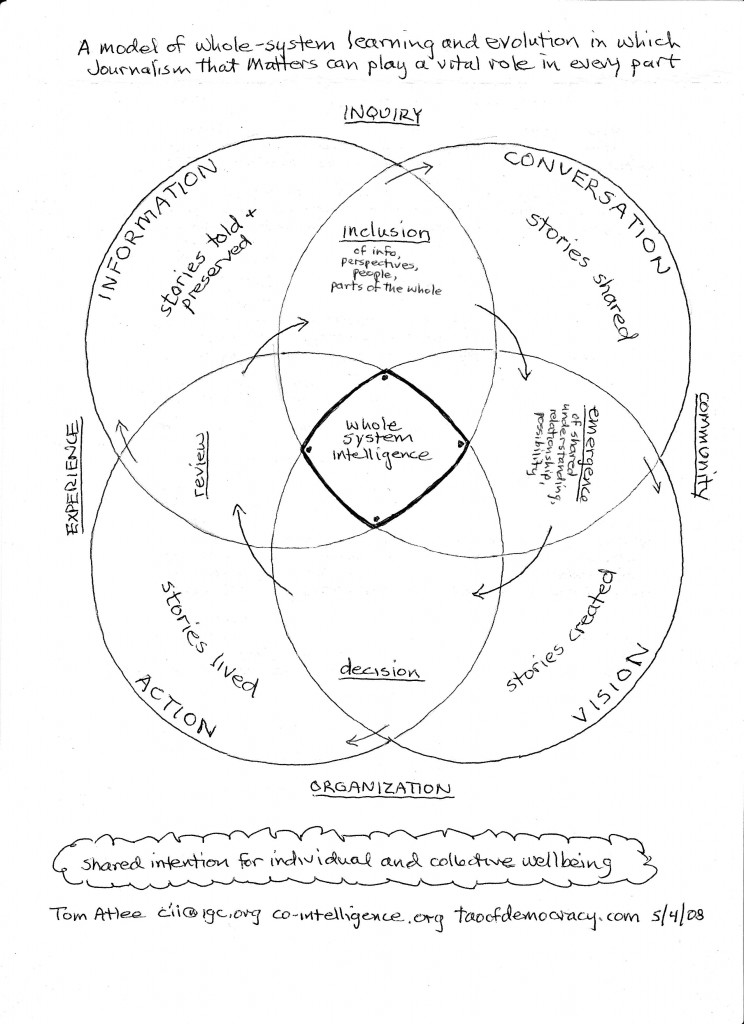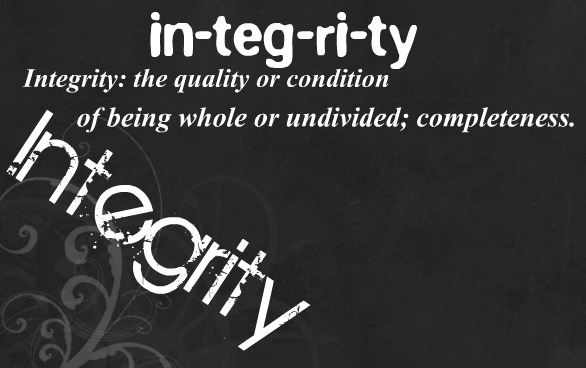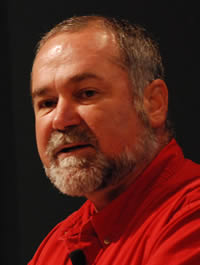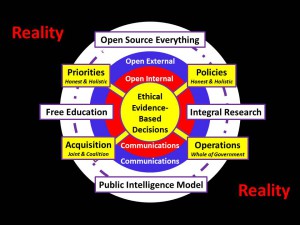
Crisis Fatigue and the Co-Creation of Positive Possibilities
by Tom Atlee
A letter to a community organizer and networker overwhelmed by the potential impact of global crises on his community.
Dear John,
You might consider something I'm thinking of calling crisis-fatigue. Like battle fatigue or compassion fatigue. I think its main ingredient is ambiguity-fatigue. It is exhausting to continually contemplate potentially massive threats from a place of radical uncertainty littered with certainties that blink on and off…
How does one respond to this in anything approaching a sane way? I struggle with this all the time. At least a few things have become obvious to me. These strategies are remarkably consistent with what you'd expect the requisites would be for living in a complex, chaotic, unpredictable system:
1) Let go of outcome. Since we're not in charge (and never really were), admit that what happens is much bigger than any of us. It seems we need to be willing to die, willing for everyone around us to suffer, willing to fail at every attempt to make the world better or to understand or to be understood, or to even grow and learn from all this. Let it all go. (I do not mean that we should expect, encourage or welcome such undesirable outcomes. I mean we can want or envision positive outcomes even as we appreciate the fullness of life with or without them. Honoring our desires without being controlled by them clarifies our minds and frees us to be fully present. I know of few forces more powerfully benign than passionate engagement without attachment.)
2) Come to terms with our own intrinsic participation in Whatever Happens. Not only are we not in control, we're not un-involved. Our role in Whatever Happens isn't something we can escape. (One consolation is we aren't alone. Everyone and everything is co-creating Whatever Happens.) This is hard for us to come to terms with because it looks so much like the guilt-based responsibility upon which our society is based (“Everything is not my fault!”); but it is a totally different thing.
Guilt-based responsibility is part of the linear cause-and-effect worldview. (“Who's responsible/ guilty/ blameworthy?” is the social equivalent of the scientists' question, “What's the cause?”) But blame can't fathom the complexity of What Happens in a living/chaotic system. Phenomena arise from the whole, from the system itself. Those who stand by when events happen are creating a context for those events to unfold in the way they do — even when they are miles away obliviously watching a sitcom. Even inanimate objects are participants: Roads are participating in the death of pollinators (by replacing trees and meadows, by enabling the transport of pesticides, by contributing to ozone depletion). Everything participates. It is pointless to point. The route to better conditions is through increased awareness of the whole, and a more radically expansive sense of all our roles. This includes the previous item — letting go — because co-creation means we're not in charge of outcomes, we're just vitally important participants in influencing them.
3) Look for positive possibilities and ways to partner them into greater probability. Meg Wheatley and David Spangler taught me about living in a world of possibilities. We could say, inspired by the poet Muriel Rukeyser, that the universe is made of possibilities, not atoms. They are everywhere. They are everything. Some say God (or the devil) is in the details. I say God (and the devil) are in the possibilities. Every moment is filled with them. Although we don't get to control how they turn out, they are very responsive to our actions, our beliefs, our caring. That is the edge of co-creativity where Life resides most vividly.
Read the rest of this truly extraordinary offering….
Phi Beta Iota: We respectfully urge one and all to contribute to the non-profit Co-Intelligence Institute. Tom Atlee is as close as we come to a Founding Father for a prosperous world at peace, beginning here in the USA.

